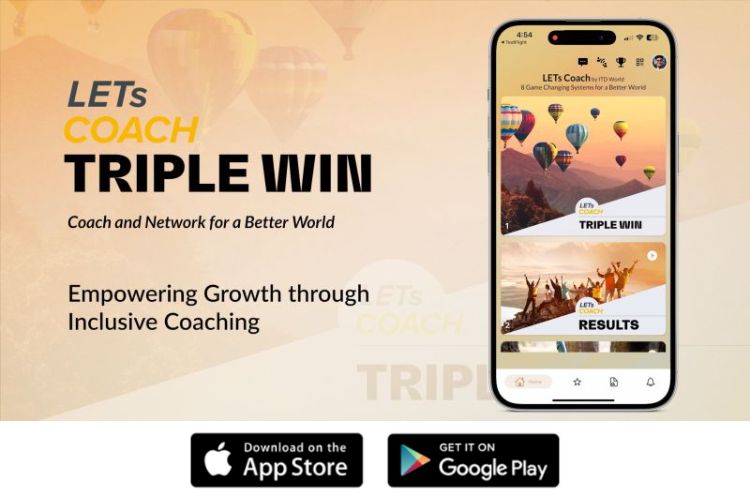Explore the core domains of life management, plus strategies and tools for one to build powerful habits and realize meaningful goals.
Your life is the most important project you will ever lead, and yet few of us approach it with the same intention we would give a business plan. Instead, we often find ourselves reacting to an endless stream of urgent demands, our days dictated by our inboxes rather than the deepest values. No wonder why many succumb to a frustrating disconnect – a feeling of being constantly busy but not truly productive or fulfilled. Fortunately, by learning about the basics of life management, one may gradually shift from this reactive state to one of proactive design.
(by Jonathan M. Pham)
Highlights
- Life management is the deliberate practice of organizing your life’s key areas, including your mind, energy, time, and relationships, to align with your values, achieve your most significant goals, and create a purposeful and productive existence.
- Life management serves as the foundation for sustained professional success and effective leadership, directly combating burnout and modeling a culture of sustainable high performance for the entire team.
- The practice is built upon four interconnected domains: Mind management (controlling focus and mindset), Time management (allocating the 24-hour resource to priorities), Energy management (actively renewing physical and mental well-being), and Relationship management (investing in a supportive personal and professional network).
- Popular life management strategies include clarifying purpose, practicing self-reflection, setting SMART goals, prioritizing with “Eat That Frog,” using the Pomodoro Technique, establishing routines, setting boundaries, and proactively investing in one’s network.
- The key challenges in life management – decision fatigue, the distraction of the urgent over the important, and the difficulty of maintaining discipline – are best navigated by simplifying and automating trivial choices, using time-blocking to protect priorities, and starting with new habits while building in accountability.
What is Life Management?
Life management is the conscious process of organizing and directing the key domains of your life to align with your personal values and achieve the most important goals. It’s a holistic approach that goes beyond simply managing tasks and schedules; it encompasses how you manage your mind, energy, time, and relationships to create an existence of purpose, productivity, and well-being.
Think of it as being the CEO of your own life. You are making strategic choices about where to invest the most valuable resources – your time, focus, and energy – to get the best possible return.
Examples:
| Aspect | Without Life Management 😬 |
With Life Management ✨
|
| Time & Focus | Constantly reacting to incoming demands (e.g., emails) |
Proactively blocking time for deep, strategic work
|
| Schedule Control | Calendar is dictated by others’ priorities |
Scheduling personal time (rest/relationships) with the same seriousness as business
|
| Outcome | Feeling perpetually busy but not truly productive |
Making decisions based on a clear set of personal values
|
The Importance of Life Management
More than just a personal wellness endeavor, the practice of life management serves as a critical foundation for sustained professional success and effective leadership. The outdated idea of a rigid wall between one’s “personal” and “professional” selves has crumbled in the modern work environment. In fact, how we manage our lives as a whole has a direct and significant impact on how we perform at work.
- The direct antidote to burnout
Modern research has consistently shown high rates of burnout symptoms among leaders – especially for those in high-pressure senior roles – which directly impacts their teams and the company’s bottom line. Burnout is a primary cause of problems such as poor decision-making, decreased empathy, and high turnover.
Intentional life management – which includes protecting time for rest, relationships, and well-being – provides a powerful defense against this career-derailing threat.
- Drives sustainable high performance
A well-managed life creates the conditions for peak professional performance. When individuals feel a sense of control and purpose, they are typically more focused, creative, and productive.
This is not just an anecdote; it is a measurable business reality. Gallup’s survey has consistently revealed a strong link between a high level of personal well-being and an improvement in key performance outcomes (e.g. higher engagement, increased productivity, better resilience to workplace stress, etc.)
- Gives a convincing example
How a leader manages their own life sets a powerful example for their entire team about what the organization truly values. For instance, a leader who is constantly overwhelmed, working late into the night, and sending emails on weekends, models a culture of burnout, regardless of what the official company policy says about work-life balance.
In contrast, one who manages their life effectively – leaving work at a reasonable hour, taking their full vacation time to recharge, and protecting their personal time – models a culture of sustainable high performance. They demonstrate that success can be achieved without self-sacrifice, which serves as an amazing message for attracting and retaining top talent.
The 4 Core Domains of Life Management
A well-designed life is typically established on the intentional management of four interconnected aspects as follows.
- Mind management
This is the foundational one, given that one’s inner state has the power to determine how they manage everything else. Mind management is the practice of directing the internal world – your focus, mindset, and self-awareness.
It involves proactively choosing a positive, growth-oriented mindset rather than defaulting to a reactive or victim mentality. It’s about being the conscious author of your thoughts, not just a passive observer of them. A well-managed mind makes one better equipped to approach challenges with clarity and purpose.
- Time management
We only have 24 hours a day; as such, we need to learn how to allocate that finite resource. Effective time management is a direct result of clear mind management; when you know your priorities (mind), you can schedule them much better (time).
Managing one’s time requires practical skills such as prioritization, scheduling, and execution. At its core, it’s about the discipline of distinguishing the “urgent” from the truly “important” – and dedicating the most productive hours to your most significant goals, rather than letting your day be dictated by your inbox.
Time management is really personal management, life management, and management of yourself.
Brian Tracy

Life management skills
- Energy management
While time is fixed, our energy is a renewable resource that must be actively monitored. This includes making non-negotiable commitments to your physical health (sleep, nutrition, and exercise), taking regular breaks for mental rest to avoid burnout, and setting healthy boundaries to protect yourself from energy-draining activities or relationships.
- Relationship management
No one succeeds in isolation; that’s why we need to intentionally invest in a strong network of both professional and personal connections – which provide a key source of support, opportunity, and fulfillment.
This means proactively scheduling time to connect with coaches/ mentors, peers, and key colleagues, as well as carving out time for family and friends. A well-managed life recognizes that these relationships are not a distraction from your “real work,” but an essential source of resilience and sustainable well-being.
Life Management Strategies: Practical Tips & Techniques
Below are a few actionable techniques you can make use of immediately to begin designing your life with greater intention.
-
For mind management: Directing your inner world
One’s thoughts and focus play a crucial role in dictating external results. As such, we all need to learn to take control of our own mindset.
- Clarify your purpose and values
A clear purpose acts as a powerful filter for every decision and enables you to stay motivated during challenging times.
Tool: Create a vision board with images that represent your goals, or write a concise personal mission statement that defines what you stand for. Review it weekly to stay connected to your “why.”
- Practice daily self-reflection
Regularly checking in with yourself is essential for being aware of your thoughts, managing your emotions, and ensuring you are on the right path.
Tool: Journaling is a simple, yet especially helpful technique for deconstructing your challenges and celebrating every win. Even five minutes a day is enough to provide immense clarity. Mindfulness apps like Headspace may also help build the crucial muscle of self-awareness.
Read more: Self-coaching – How to Be Your Own Coach
-
For time management: Mastering your 24 hours
The following strategies serve to translate one’s purpose and priorities into a productive daily routine.
- Set clear & actionable goals
Vague objectives lead to vague results (for sure). As such, to make tangible progress, you must be very specific about what you are aiming for.
Tool: The SMART goals framework (Specific, Measurable, Achievable, Relevant, Time-bound) are great for giving your objectives clarity and a deadline.
- Prioritize
Not all tasks are created equal. The key to high productivity, therefore, is to direct your best energy to what matters most.
Tool: Consider applying the “Eat That Frog” technique, popularized by Brian Tracy. The idea is to tackle the single most important, and often most difficult, task first thing in the morning before other distractions may get in the way.
You can do anything, but not everything.
David Allen
- Master deep, focused work
In a world of constant digital distraction, the ability to focus for sustained periods is a professional superpower.
Tool: Use the Pomodoro Technique – work in focused 25-minute intervals, followed by a short break. A simple practice, yet it trains your brain to concentrate and contributes to preventing mental fatigue.
-
For energy management: Protecting your fuel source
To execute your plans effectively, it’s crucial that you have the necessary physical and mental vitality in place.
- Establish routines
Routines automate discipline and conserve your willpower for when it truly matters.
Tool: Design a consistent morning routine that energizes you for the day ahead. This could include exercise, meditation, reading, or planning the day before checking your email.
- Set & enforce boundaries
Protect your time and energy by learning to say a respectful “no” to low-priority requests that do not align with your goals.
-
For relationship management: Cultivating your network
- Be proactive & intentional
Don’t leave your key relationships to chance or “when you have time.” Rather, treat them like projects that need to be invested in – by scheduling regular check-ins with mentors, peers, and loved ones on your calendar with the same commitment you would give to a business meeting.
Navigating the Challenges of Life Management
- Overcoming “decision fatigue”
Modern professionals are typically bombarded with hundreds of worries every day, from which email to answer first to what to have for lunch. Over time, it depletes one’s mental energy, making it much harder to make high-quality choices about what truly matters.
Solution: Simplify & automate. The key is to reduce the number of trivial decisions you have to make each day to conserve your willpower for the truly crucial ones.
Example: This is the principle behind adopting a more minimalist approach or creating strong routines. By planning your work outfits for the week on Sunday – or having the same healthy breakfast every morning, you eliminate small daily decisions. Hence, you free up precious mental bandwidth for complex problem-solving and strategic thinking.
When we develop productive (rather than destructive) habits or routines – for example, exercising first thing in the morning, eating the same nutritious breakfast, taking the same hyper-efficient route to work each day – inertia is our friend, keeping us grounded and committed and consistent.
- The constant pull of the “urgent”
Have you ever started the day with a clear plan to work on a long-term project, only to have your entire schedule consumed by “urgent” but low-impact tasks, emails, and meetings? This is the classic “urgent vs. important” problem described by Stephen Covey.
Solution: Practice time-blocking. You must protect the time for your non-negotiable priorities with the same discipline you would for an important meeting/ appointment.
Example: Identify your single most important task for the day (your “frog”). Time-block the first 60 or 90 minutes of the workday to focus solely on that task.
The key is not to prioritize what’s on your schedule, but to schedule your priorities.
Stephen Covey
- Maintaining discipline & motivation
It’s an unfortunate thing, but the fact is that initial enthusiasm for a new routine or system often fades after a few weeks, making it easy for us to revert to old, less effective patterns.
Solution: Start impossibly small and build in accountability. The secret to adopting new habits is to make them so easy to start that you can’t say no, and to have a system that keeps you on track.
Example: Instead of a goal to “meditate for 20 minutes every day,” the principle from James Clear’s Atomic Habits is to start with a “two-minute rule.” Your goal is simply to “sit and breathe for two minutes.” This makes the new habit too small to fail. To sustain it, find an accountability partner – a peer, mentor, or coach – and check in with them weekly on your progress. This external support is often the key to making new routines stick for the long term.

How to manage my life
Life Management Quotes
A goal without a plan is just a wish.
Antoine de Saint-Exupéry
If you don’t know where you’re going, you’ll end up someplace else.
Yogi Berra
Don’t say you don’t have enough time. You have exactly the same number of hours per day that were given to Helen Keller, Michelangelo, Leonardo da Vinci, and Albert Einstein.
H. Jackson Brown Jr.
Your life does not get better by chance, it gets better by change.
Jim Rohn
Success is nothing more than a few simple disciplines, practiced every day.
Jim Rohn
We are what we repeatedly do. Excellence, then, is not an act, but a habit.
Will Durant
Discipline is choosing between what you want now and what you want most.
Abraham Lincoln
It is not daily increase but daily decrease. Hack away at the unessential.
Bruce Lee
Life Management Resources: Recommended Toolkit
Books
- Atomic Habits by James Clear
Focus area: Habit formation and behavior change.
- The 7 Habits of Highly Effective People by Stephen R. Covey
Focus area: Personal and professional effectiveness.
- Eat That Frog! by Brian Tracy
Focus area: Time management and productivity.
- The Power of Habit by Charles Duhigg
Focus area: Science of habits and how to change them.
- The Life-Changing Magic of Tidying Up by Marie Kondo
Focus area: Decluttering and organizing one’s space.
- The War of Art by Steven Pressfield
Focus area: Overcoming resistance and unlocking creativity.
- The Obstacle Is the Way by Ryan Holiday
Focus area: Turning challenges into opportunities based on the principles of Stoicism.
- The 5 AM Club by Robin Sharma
Focus area: Morning routines for peak performance.
- Who Moved My Cheese? by Spencer Johnson
Focus area: Adapting to change in life and work.
Apps
🧠 Productivity & Task Management
- Todoist – Task manager with smart scheduling and project tracking.
- Notion – All-in-one workspace for notes, tasks, databases, and collaboration.
- Trello – Visual boards for organizing projects and workflows.
- Microsoft To Do – Simple, intuitive task lists with reminders and daily planning.
⏳ Time & Focus
- RescueTime – Tracks digital habits and helps you understand where your time goes.
- Forest – Stay focused by growing virtual trees while avoiding distractions.
- Focus@Will – Music designed to improve concentration and productivity.
📅 Calendar & Scheduling
- Google Calendar – Smart scheduling with reminders, events, and shared calendars.
- Calendly – Automates meeting scheduling and availability sharing.
- TimeTree – Shared calendar for families, couples, or teams.
🔁 Habits & Goals
- Habitica – Gamified habit tracker that turns your goals into a role-playing game.
- Streaks – Adopt good habits by maintaining daily streaks.
- Fabulous – Science-based coaching for routines, motivation, and wellness.
🧘 Wellness & Mindfulness
- Headspace – Guided meditation and mindfulness exercises.
- Daylio – Mood and activity tracker with journaling features.
- Reflectly – AI-powered journaling for mental clarity and emotional health.

Personal life management
How ITD World Can Support Your Journey
Mastering the art of life management is a profound journey that serves as the basis for all professional success. While many of the strategies are self-directed, the path to growth is often accelerated with the guidance of a professional coach who can provide the clarity, skills, and accountability needed to make lasting change.
While ITD World does not offer general life management counseling, our world-class coaching and soft-skill training solutions are designed to equip you with the essential capabilities – like emotional intelligence, self-awareness, and prioritization – that are the very foundation of a well-managed life.
- For those who wish to master these competencies for themselves and to help others, our premier Certified Chief Master Coach (CCMC) program includes a comprehensive Life Coaching component, giving the chance to deep dive into the frameworks for personal and professional fulfillment.
- Our Love the World Initiative (LWI) provides a unique opportunity for leaders to receive support. A standout feature is the Sunrise Eureka Beach Coaching (SEBC), where our CEO, Dr. Peter Chee, voluntarily provides coaching sessions to help leaders align their professional ambitions with their personal values and life goals.
Ready to cultivate the skills to lead a more intentional and impactful life, both personally and professionally? Contact ITD World today to learn how our solutions can help!
Other resources you might be interested in:
- Love Leadership: More Than an Abstract Philosophical Idea
- 12 Leadership Coaching Topics to Drive Lasting Transformation
- Thoughtful Leadership: Why It Matters in Today’s Hectic World
- Spiritual Leadership: A Remedy for The Modern Workplace Woes
- Why Follow Up is Crucial to Behavior Change & Leadership Effectiveness


